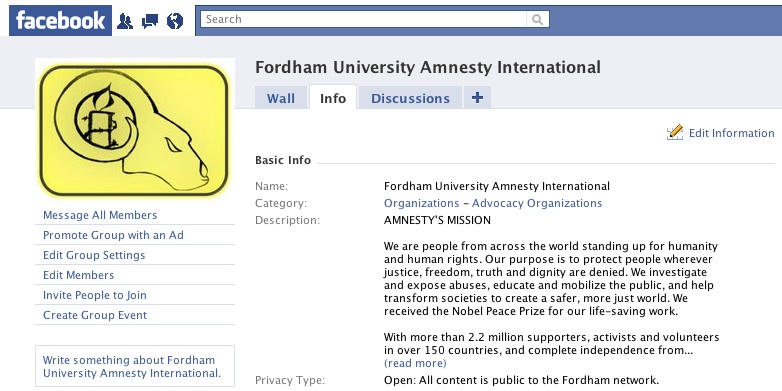Social Media and Civic Engagement: A Relationship of Convenience
August 3, 2011

Logging in to Facebook, you see a notification: “John Doe invited you to the event ‘Students Supporting Fill-in-the-cause.” When you check your timeline on Twitter, you see a few tweets like this: “@yourfriend: Hey everybody! Go to this site and donate to an important cause!” Students come across messages like these almost every day during their communication on social networking sites.
Despite constant exposure to political and social causes through sites such as Facebook and Twitter, just participating in social networks does not necessarily lead to increased civic engagement, according to a recent series of studies released by Mills College in Oakland, Calif. These studies did find, however, that students belonging to online groups sharing common interests were more likely to volunteer, give to charities and express their opinions about community issues, as reported by the Christian Science Monitor.
These findings are somewhat misleading, at least according to assistant professor of communication and media studies Margaret Schwartz. “Data interpretation is a very tricky thing,” Schwartz said.
Schwartz believes that the recent media fixation on social media’s role in the Egyptian uprisings is somewhat overstated. “Western media likes to think Facebook and Twitter are responsible because that’s how they find out about everything that’s going on, that’s how they get their info.” Schwartz doesn’t believe the media are being clear with Facebook’s role in the protests. “I suspect they were mainly used as a way of getting info out,” Schwartz said.
To Schwartz, this is different than real civic engagement. “If it actually came down to doing something with risk involved,” Schwartz said, “Facebook connections aren’t enough to get you motivated to put your life on the line.”
Where Schwartz sees value in social media for civic engagement is in its ability to organize masses. “I can understand it if you’re using Facebook to let everyone know where the meeting space is,” Schwartz said. “It’s good for organizing and letting people know, but not for recruiting for a cause.”
Students mostly support this limited use of social networking in social involvement and agree on the importance of tools like Facebook in any sort of activism.
“Social networking is really important for social activisim,” Alanna Parisi, Fordham College at Lincoln Center (FCLC) ’12, said. As president of FCLC’s Amnesty International chapter, Parisi uses Facebook to get information out. “It’s really an amazing way to get the word out about events,” she said. At her internship for Amnesty International, Parisi also used Facebook to send out information about particular issues, which she sees as a very important aspect of civic engagement.
“Since educating people about a cause is probably the most important component of activism,” Parisi said, “social media are one of the most reliable and effective tools because it makes reaching a large audience very simple.”
At another Non-Governmental Organization, Brendan Foo, FCLC ’13, used Facebook to reach a global audience. With the Institute for International Humanitarian Affairs, Foo used Facebook to run diploma courses for students around the world. “Social media is an invaluable tool for bypassing geographical boundaries,” Foo said. “It allows people who are involved in such issues to communicate over long distances.”
Ryan O’Toole, FCLC ’12, sees potential in Twitter to spread political views. “I follow a lot of politicians and political parties on Twitter,” O’Toole said, who often retweets opinions from politicians. “If something important is going on, I’ll tweet my opinion on it. Twitter is good for expressing opinions.”
Except for the occasional sharing of important articles, Facebook for O’Toole is more of a social tool than a political one. As such, he doesn’t see much use in it for actually mobilizing resources for a cause, other than people. “I think for causes,” O’Toole said, “it’s hard to get people to donate, because they won’t trust Facebook links asking for money.” For rallies and events, however, Facebook can be useful, like when O’Toole advertised one of his USG events through Facebook.
Although most students did agree on the usefulness of social networking sites for organizing already-interested followers, other observers like Schwartz remained doubtful of how useful a Facebook page can actually be. “ISIS’s Facebook page gives me a way to get more updated,” Schwartz said, “but that doesn’t mean I’m going to go get a vagina lollipop on the Plaza.”
In other words, Schwartz would reply, “Not Attending.”











